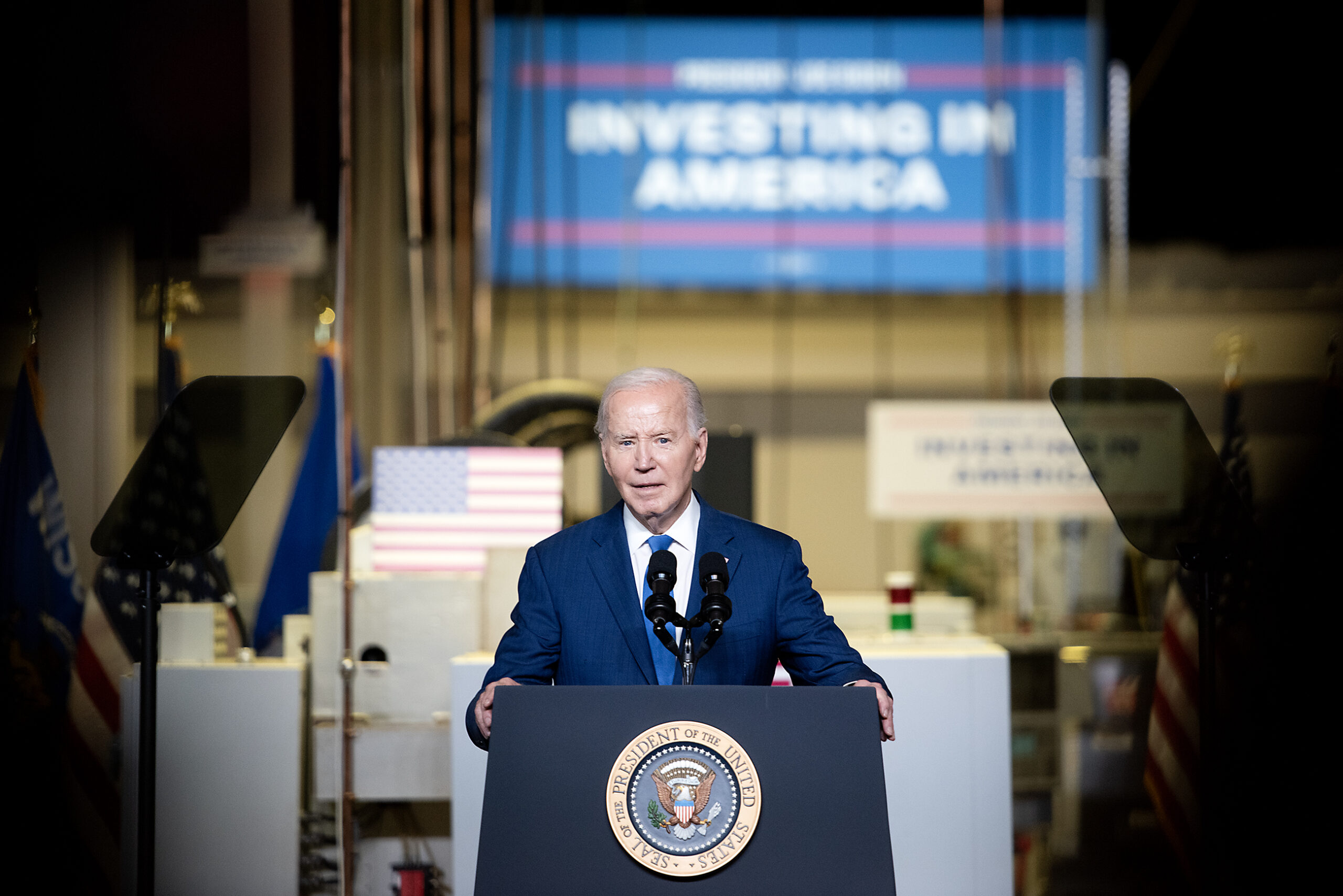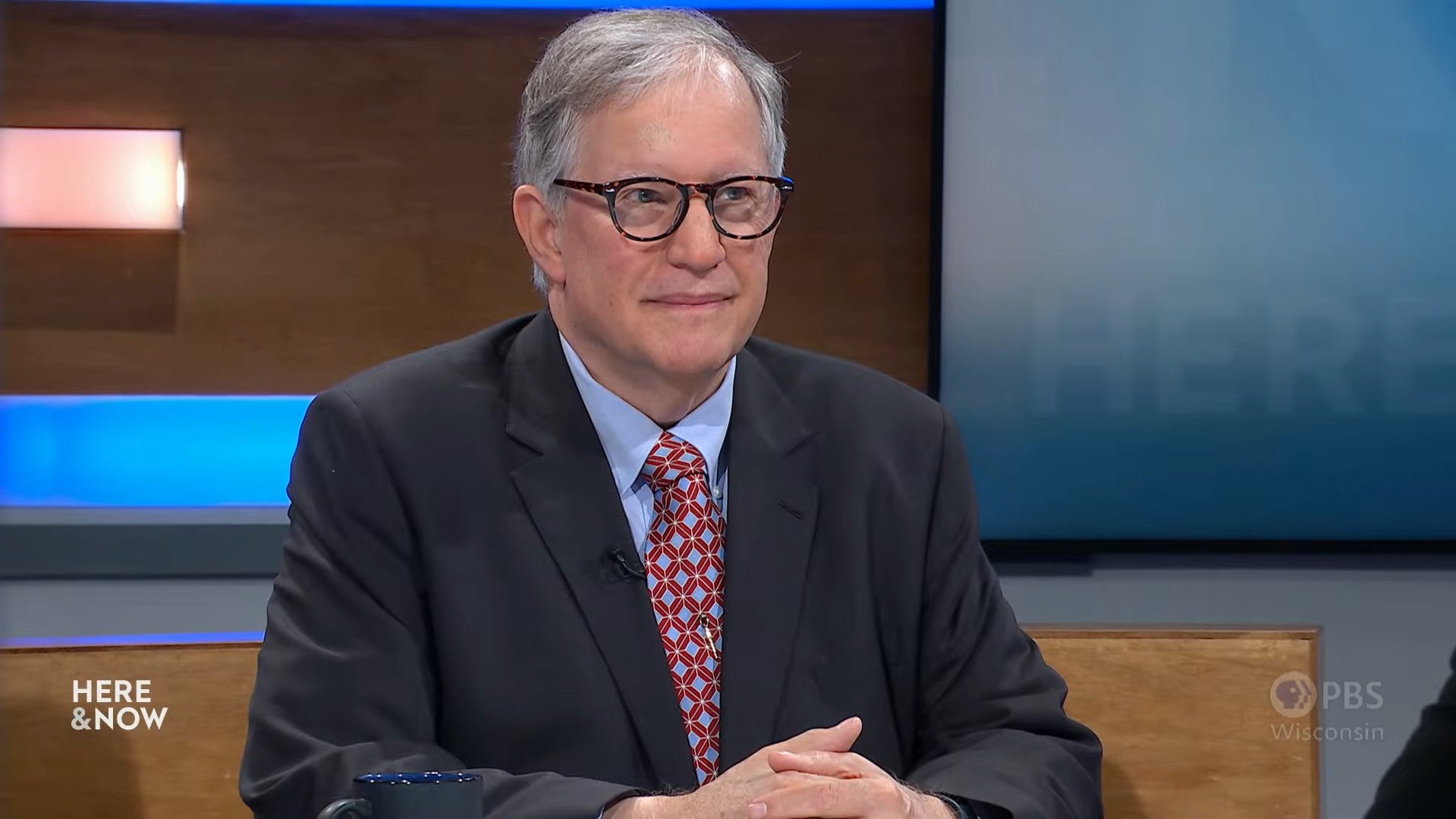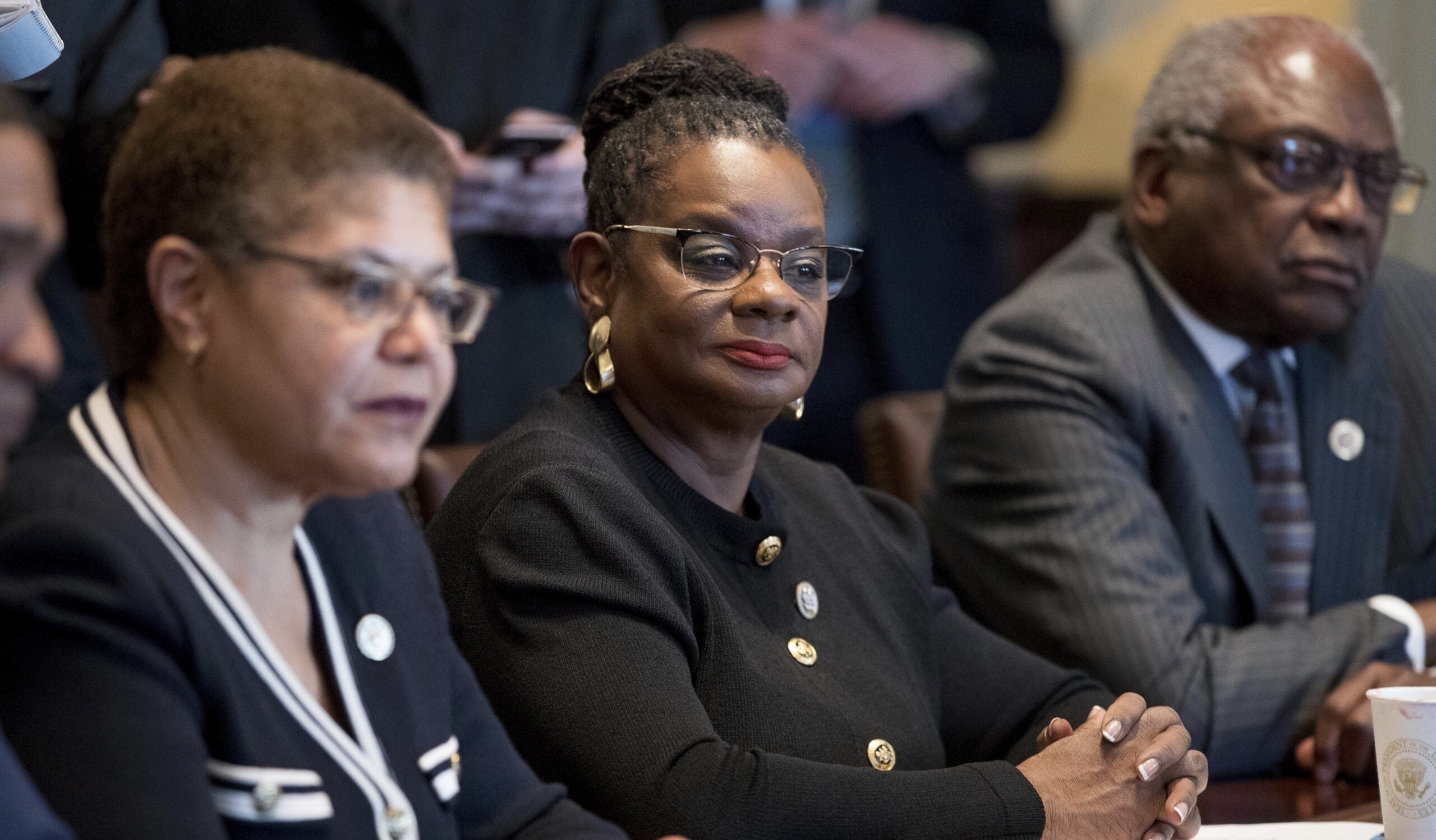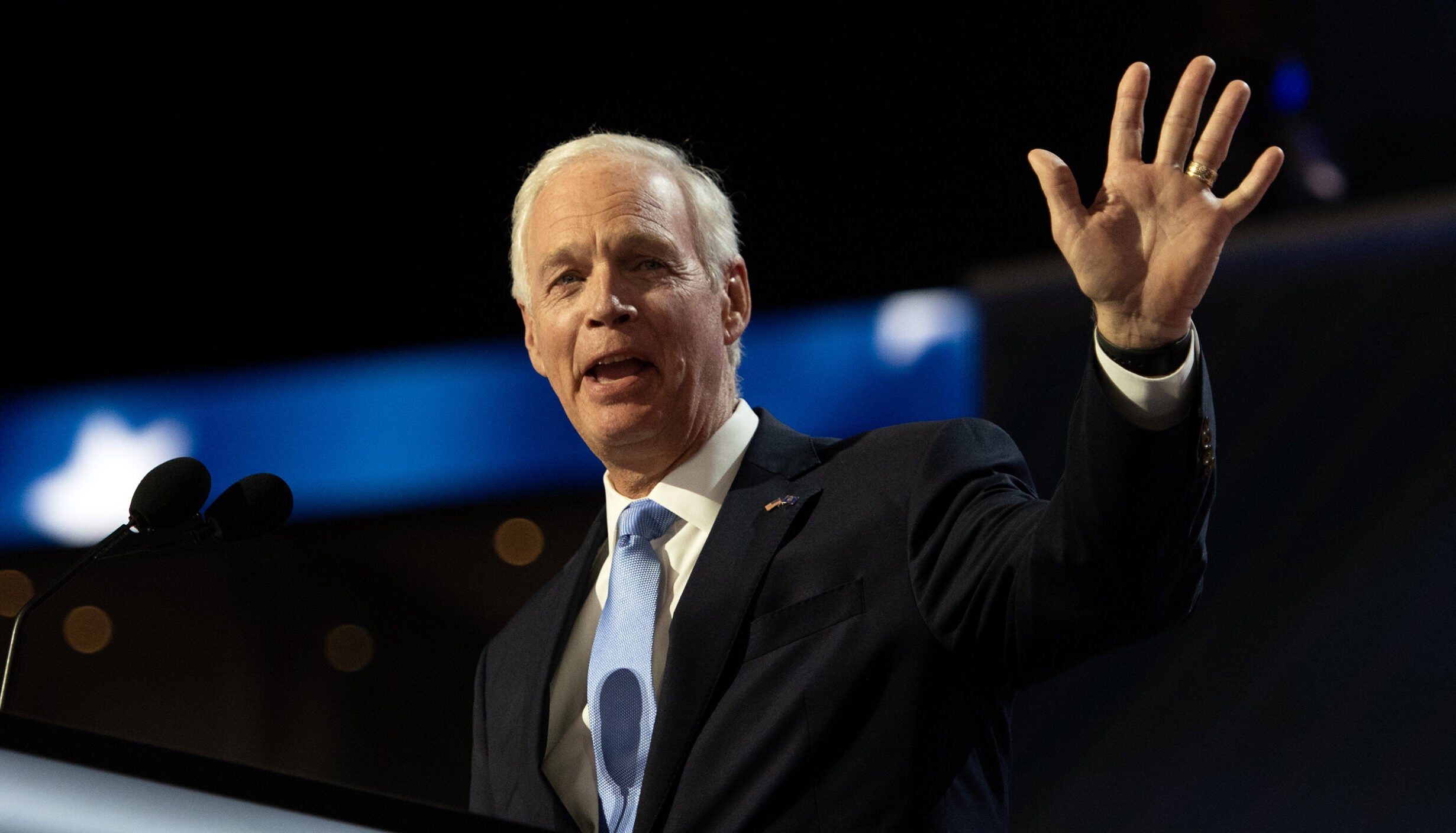President Joe Biden appeared on Milwaukee talk radio Wednesday to make the case for why Black Wisconsinites should vote for him — a clear sign of the importance Black voters will have in determining who wins the presidency this November.
In an interview on “The Truth with Sherwin Hughes,” a talk program aimed at Milwaukee’s Black community, Biden highlighted his record on issues that affect African Americans to draw a distinction between himself and former President Donald Trump. He also attacked Trump for past statements that have angered African Americans.
“We understand the Black community is a critical, critical, critical part of growth and security of the country, and we understand that whereas Trump (is) still accusing the Central Park Five, is the founder of birtherism,” Biden argued.
News with a little more humanity
WPR’s “Wisconsin Today” newsletter keeps you connected to the state you love without feeling overwhelmed. No paywall. No agenda. No corporate filter.
The Central Park Five refers to five Black and Latino men who, as teenagers in 1989, were wrongly convicted of the brutal rape of a jogger in New York City. Shortly after the event, Trump took out newspaper ads calling for New York State to adopt the death penalty.
Biden also argued that his record on jobs, health care and infrastructure made him the better candidate for voters of color.
When Hughes asked Biden whether he could commit to protecting the Affordable Care Act, citing health disparities in the Black community, Biden contrasted his record with that of Republicans.
“Republicans tried to get rid of it 50 times — five-zero,” he said. “And Trump’s committed to get rid of it, said he’s going to get rid of it now. And why in God’s name are they doing that?”
Trump has taken differing stances on whether he wants to substantially change the Affordable Care Act — sometimes referred to as Obamacare — or repeal it altogether. When running in 2020, Trump said he wanted to “terminate Obamacare, come up with a brand new, beautiful health care.”
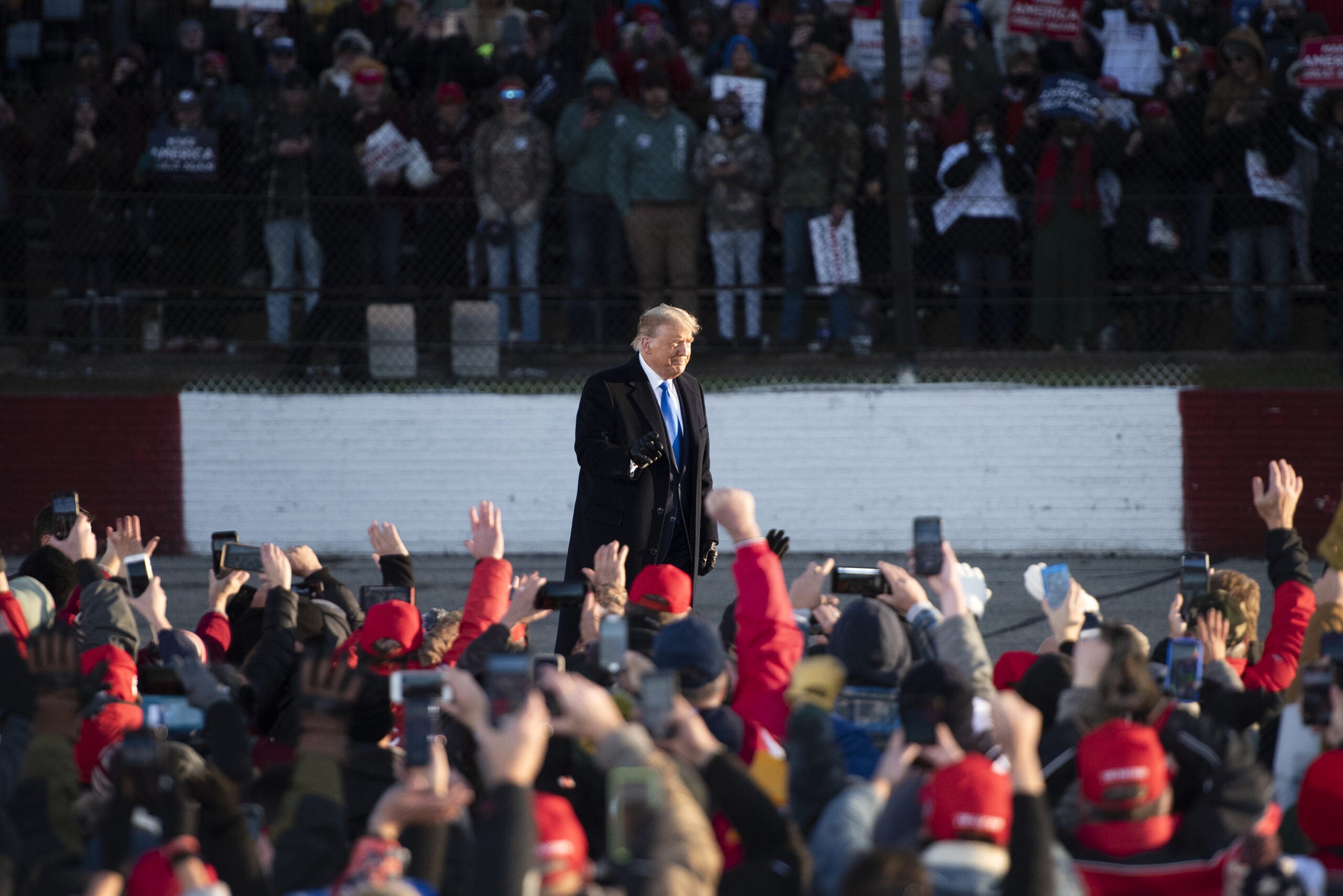
In 2023, he wrote on Truth Social that he wanted to “replace it with much better healthcare.” And in March, he posted again that he is “not running to terminate the ACA,” but wants to make it “much better, stronger, and far less expensive.”
When asked for comment by WPR, a spokesperson for Trump’s campaign responded with a written statement that accused Biden of “gaslighting Black and Hispanic voters.”
“Our coalition message to Black and Hispanic communities this election is simple: If you want the return of the strongest economy in over 60 years, rising wages, quality jobs, strong borders, and safe neighborhoods, then vote for Donald J. Trump,” said Lynne Patton, a senior advisor to the Trump campaign.
The campaign also blamed the Biden administration for healthcare costs, and said voting for Trump’s border priorities would improve the Affordable Care Act.
The importance of the Black vote
Both candidates will need to court Black voters on their path to the White House. In Wisconsin, that means focusing on Milwaukee, a Democratic stronghold which is about 40 percent Black and where strong grassroots operations mobilize voters of color every cycle.
While Black voters turn out overwhelmingly for Democrats, support for Trump has ticked up slowly. In 2020, he won about 8 percent of Black voters nationally, up from 6 percent in 2016.
In Wisconsin, a Marquette University analysis of majority Black wards in Milwaukee showed support for Biden slipped by an average of nearly 2 percent compared to the 2016 presidential vote for Democrat Hillary Clinton.
This cycle, polling suggests even more Black voters say they’d vote for Trump. A November survey of national voters by GenForward found 17 percent supported Trump, while one-fifth said they’d like an option besides either Biden or Trump.
Biden has made it clear that Black voters will be key to his campaign strategy this year, as he faces down an expected close race with Trump. In Wisconsin, where the last two presidential races were decided by less than 1 percentage point, a Democratic victory could be determined by strong turnout among historically Democratic voting blocs.
Wisconsin Public Radio, © Copyright 2025, Board of Regents of the University of Wisconsin System and Wisconsin Educational Communications Board.

